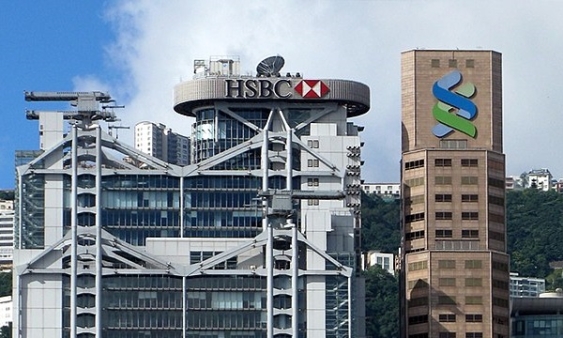
HSBC exits US mass market retail banking, sells 90 branches
All personal, advance, and retail business banking customers with turnover below $5m are affected.
HSBC is exiting its US mass market retail banking business, and is selling 90 of its branches in the country.
Affected clients include all personal, advance and certain premier banking customers—notably those with balances below $75,000; and all retail business banking customers, or small businesses with turnover of $5m and under.
HSBC CEO Noel Quinn reasoned that they lacked “the scale to compete” in the US domestic mass market banking sector—unintentionally echoing the same reason that Citibank said when the other bank exited its consumer banking business in 13 markets.
“They are good businesses, but we lacked the scale to compete,” Quinn said regarding the decision to exit the domestic mass market US retail banking business.
Of its current 148 branch locations, 90 will be sold, about 20-25 planned to be repurposed into 20-25 international wealth centres, and the remaining 35-40 will be “wound down”, the press release stated.
Citizens Bank has entered into an agreement to purchase the East Coast domestic mass market and retail business banking businesses as well as its online bank portfolio. These include 80 branches and approximately 800,000 customer relationships, with $9.2b in deposits and $2.2b of outstanding loans as at 31 March.
HSBC’s West Coast domestic mass market and retail business banking businesses are being bought by Cathay Bank. The portfolio includes 10 branches and approximately 50,000 customer relationships with $1b in deposits and $800m of outstanding loans as at 31 March.
The announced transactions are expected to close by the first quarter of 2022, subject to regulatory approvals, said HSBC US and Americas CEO Michael Roberts. The bank expects $100m of pre-tax costs to be incurred in connection with these transactions.
“A strong, internationally connected US business is an important part of HSBC’s value proposition, and we are excited to be focusing the US business in areas of competitive strength,” Roberts said in the press release. “At the same time, I am very pleased that we were able to execute this strategic repositioning at pace. It was also important for us to find buyers who would be a good fit for our customers and employees.”






















 Advertise
Advertise








